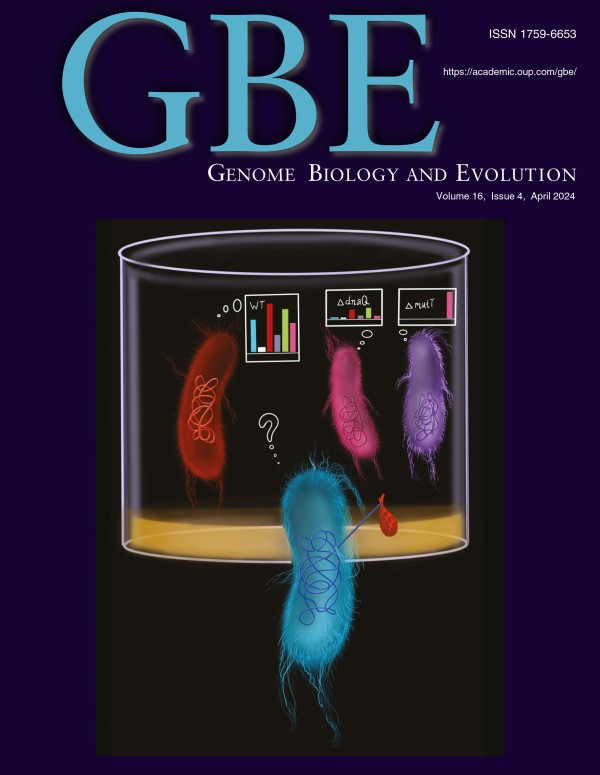Bacterial genomes experience lots of mutations that result from a complex mix of DNA damage, errors made by DNA polymerase, and errors repaired or made by repair enzymes. Do these processes leave a tell-tale signature in the genome, and can we use it to infer which processes were most important? A new paper in Genome... Continue Reading →
Diet microbiome has variable effects on different immune responses
Several years ago, Arun Prakash and Imroze Khan set up an ambitious experimental evolution study in the lab, infecting populations of flour beetles with the pathogen Bacillus thuringiensis (Bt). They found that different selection regimes led to the evolution of mutually exclusive immune responses – beetles either evolved better basal resistance to Bt, or immune priming... Continue Reading →
New paper: Mutation bias shifts can be adaptive
Our paper describing the evolutionary effects of shifts in mutation bias is now published! We started out by asking if mutation spectrum could alter the fitness effects of new mutations in E. coli. To our surprise, we found a consistent effect across many environments, but could not attribute the difference to any particular properties of... Continue Reading →
New paper: What governs redundancy in bacterial translation?
Our long-dreamt-of project on understanding the effects of widely varying tRNA gene copy number is finally complete! In a new paper, we describe the growth consequences of altering redundancy in the bacterial translation machinery. We find that the costs and benefits of redundancy vary with the possible growth rate, i.e. it is nutrient-driven. This was... Continue Reading →
New paper: Bacterial associates can increase rice yield
The results of our field study of the impact of different Methylobacterium strains on their host rice landraces (traditionally cultivated rice varieties from Manipur) are out! We find that strains show host-specific effects (beneficial or deleterious). Though the mechanisms remain unclear still, it is clear that there is enormous potential to use beneficial host-bacterial interactions for... Continue Reading →
New paper: Pinning big jumps in genome GC
Bacteria have remarkably diverse base composition in their genomes, with many well studied cases of rapid GC reduction associated with obligate symbiosis and genome streamlining in poor environments. But we don't really understand how GC content generally changes in evolutionary time. To find out, Saurabh tested different evolutionary models of change in GC content in... Continue Reading →
1st meeting of network on prokaryotic genome evolution
We are happy to finally announce the 1st meeting of our special topic network on synthesizing micro- and macro- evolutionary processes shaping prokaryotic genomes, supported by ESEB. The meeting will be hosted at the Milner Center for Evolution at the University of Bath, UK, from 30 May to 1 June 2022. We have a great... Continue Reading →
New paper: Selection biases the results of mutation accumulation experiments
Our paper reporting the impact of selection bias in mutation accumulation (MA) experiments is now published! A few years ago, Mrudula had tested the effect of single mutations accumulated in MA experiments (see Sane et al 2018, Evolution), finding that a surprisingly large fraction were beneficial. In the new paper, mathematician Lindi Wahl uses simulations... Continue Reading →








